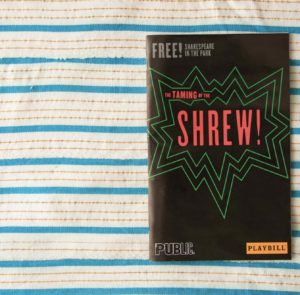The edges of a puzzle piece is the key that conveys where it fits. If as human, one is a puzzle piece that must discover its peripherals and then insert itself within the space where it helps bring the completion of the puzzle as a whole, how much difficult would this task be when prior to discovering one’s contours, one has been led to fear it? In his poem, “I Saw in Louisiana a Live-Oak Growing,” Walt Whitman writes:
I saw in Louisiana a live-oak growing,
All alone stood it and the moss hung down from the branches,
Without any companion it grew there uttering joyous leaves of dark green,
And its look, rude, unbending, lusty, made me think of myself,
But I wonder’d how it could utter joyous leaves standing alone there without its friend near, for I knew I could not,
And I broke off a twig with a certain number of leaves upon it, and twined around it a little moss,
And brought it away, and I have placed it in sight in my room,
It is not needed to remind me as of my own dear friends,
(For I believe lately I think of little else than of them,)
Yet it remains to me a curious token, it makes me think of manly love;
For all that, and though the live-oak glistens there in Louisiana solitary in a wide flat space,
Uttering joyous leaves all its life without a friend a lover near,
I know very well I could not.
The speaker of the poem is saying, I am someone whose happiness streams from those dear to me but here is a tree whose happiness stems from its solitude; we use different processes to achieve the same goal and as I recognize its achievements––“uttering joyous leaves”––I am reminded of myself––“it made me think of myself.” The speaker admires and respects the live-oak tree without envy nor the desire that its ways would reflect his own. In their difference he sees a shared effort, “manly love.”
To see difference and see within it similarities; to be able to understand that pieces come together to form a whole and not only know this in theory but know it in practice and recognize it in everything around us is to live in luxury. A luxury that accepts payments of inner efforts and the ability to dare to discover and claim our contours. But what if we can only see the difference and thus only the seemingly “rude, unbending, lusty” nature which is frightening and threatening? Then shouldn’t we inquire of ourselves: what am I seeing? Why do I see as such? Are there really no similarities? And what is there to be afraid of?
To be objective enough to discover our peripherals and to allow our roots to dig deep into the earth and shoot straight through the air with our trunks and branches in peaceful and joyous liveliness is what ought to be called a life of luxury. A luxury that doesn’t make us useless, rather one that enriches our lives and those around us; a simple luxury that is affordable to all and always present within one.
—
JAO




Each in its own place, whether the oak or the man – the place God gave it.
"Uttering joyous leaves" is a fine expression.